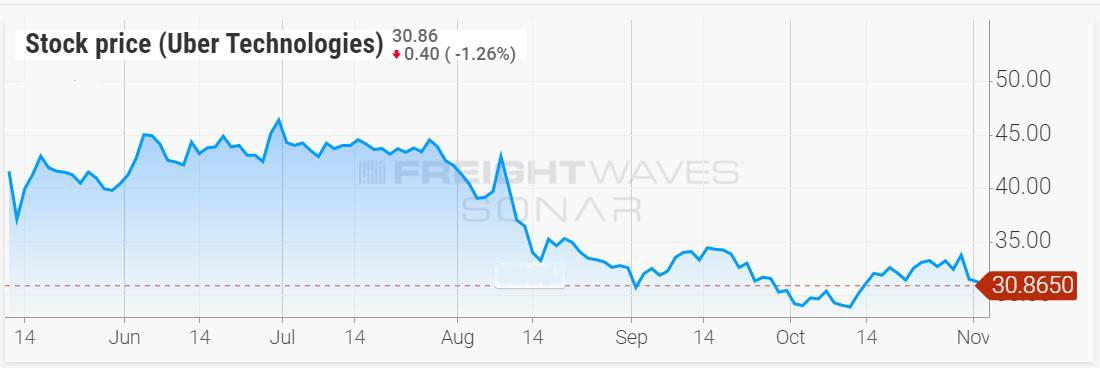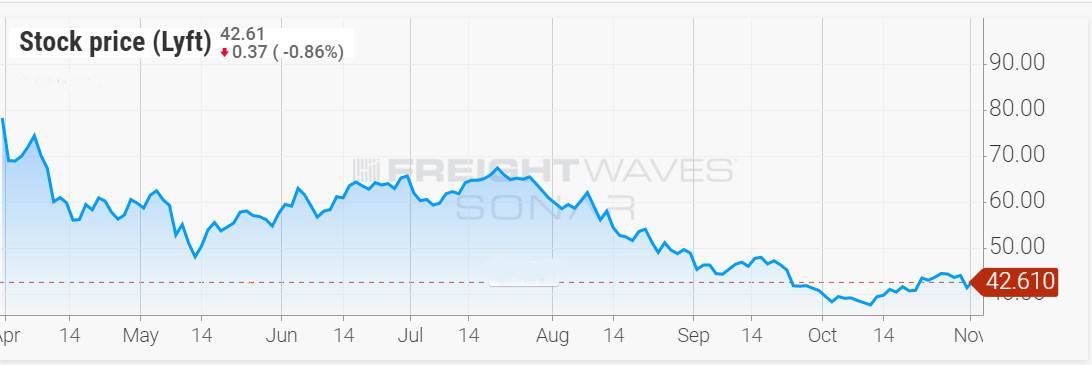Uber [NYSE: UBER] and Lyft [NASDAQ: LYFT] are pushing back against lawmakers challenging their independent contractor model. The companies asserted that most of their drivers prefer the flexibility that employment approach provides.
In written responses to questions raised at a congressional hearing in October, Uber and Lyft detailed why their drivers are classified as independent and not employees.
“There is no minimum commitment or obligation to work or to connect to the Uber app, and there are no required schedules or management,” wrote Uber’s Justin Kintz, vice president for Global Public Policy, in a Nov. 1 letter to Peter DeFazio, D-Oregon, Chairman of the U.S. House Transportation & Infrastructure (T&I) Committee.
“In the United States, 45% of drivers spend less than 10 hours per week on Uber. During the rest of their active time, they may be using other ride-sharing applications or engaging in work via other means.”
Lauren Belive, director of Federal Public Policy for Lyft, wrote to DeFazio on Nov. 1 that 91% of drivers using the Lyft platform driver fewer than 20 hours per week, 76% drive fewer than 10 hours per week, and the median driver spends just 10 weeks per year driving with the company.
“Drivers have the freedom, flexibility and control to choose when to work, how much they work, how often they work, where to work and ultimately whether to log on at all,” Belive said. “Rideshare drivers have told us repeatedly that they do not want to lose this freedom, flexibility and control, and many would stop driving if forced into the confines of a traditional job that they have already chosen to avoid.”

Belive pointed out that both the U.S. Department of Labor and the National Labor Relations Board have ruled in favor of independent contractor status for transportation network companies.
Uber and Lyft, along with food delivery service DoorDash, have filed to get a proposal in front of voters in California to overturn the state’s AB5 law that goes into effect next year. The law codifies rules making it more difficult for “gig economy” companies to use independent contractor drivers.
At the hearing in October, DeFazio and Del. Eleanor Holmes Norton, D-District of Columbia, Chairman of the House T&I’s Highway and Transit subcommittee, raised concerns about passenger safety following reports of sexual assaults on riders by people posing as legitimate drivers. Members of Congress asked why the companies opposed fingerprint background checks for drivers.
“The FBI and state databases that are utilized for fingerprint-based background checks have significant gaps that reduce their efficacy and can lead to discriminatory outcomes for communities of color,” Kintz said. He acknowledged that Uber paid $7.5 million to support a ballot measure in Austin, Texas, opposing an ordinance requiring fingerprint background checks. The measure ultimately failed.

To make sure riders are getting in the right car, Kintz said, they will soon be able to choose to receive a unique four-digit PIN that can be verbally provided to the driver, and the driver will only be able to start the trip in the app once the correct PIN has been entered. He said Uber is also developing technology that uses ultrasound waves to verify the correct rider is in the right car.
Kintz added that Uber will also release a first-ever safety report by the end of the year that will include data on reports of sexual assaults and other safety incidents connected to the platform.
Uber and Lyft also addressed whether they plan to seek federal funds as they pursue partnerships with local and regional transit agencies. Uber confirmed two federal funding programs it has participated in to demonstrate how its technology can be used to expand public transportation operations.
Lyft said that while it is not currently seeking federal transit funds, it is “focused on helping transit agencies respond to solve mobility gaps in their communities.”

Noble1
Quote:
“Lyft settles worker misclassification lawsuit for $12.25 million ”
Quote:
“Ending the “Independent Contractor” Misclassification Sham
Misclassifying workers as independent contractors hurts workers and enriches bosses, and is central to the business strategy of companies like Uber and Lyft. California state legislators passed AB 5 this week to stop this exploitative model. It’s a victory that must be defended from Uber and Lyft’s fightback.
The Misclassification Scam
AB 5 closes a loophole through which over a million workers in California are misclassified as “independent contractors,” despite being more or less ordinary employees. Lyft, Uber, DoorDash, and other gig economy stars are getting the most attention, but the law will also affect workers in many more “traditional” industries, from trucking to nail salons to newspaper delivery to the adult entertainment industry.
Because it shifts operating costs and all sorts of risks normally borne by employers onto the workers, misclassification is a scam that’s horrible for workers and great for bosses.”
Google it !
Enough is enough ! These companies are wasting their time and tax payer funds ! Gig economy exploitation has come to an end ! Accept it !
In my humble opinion ………….